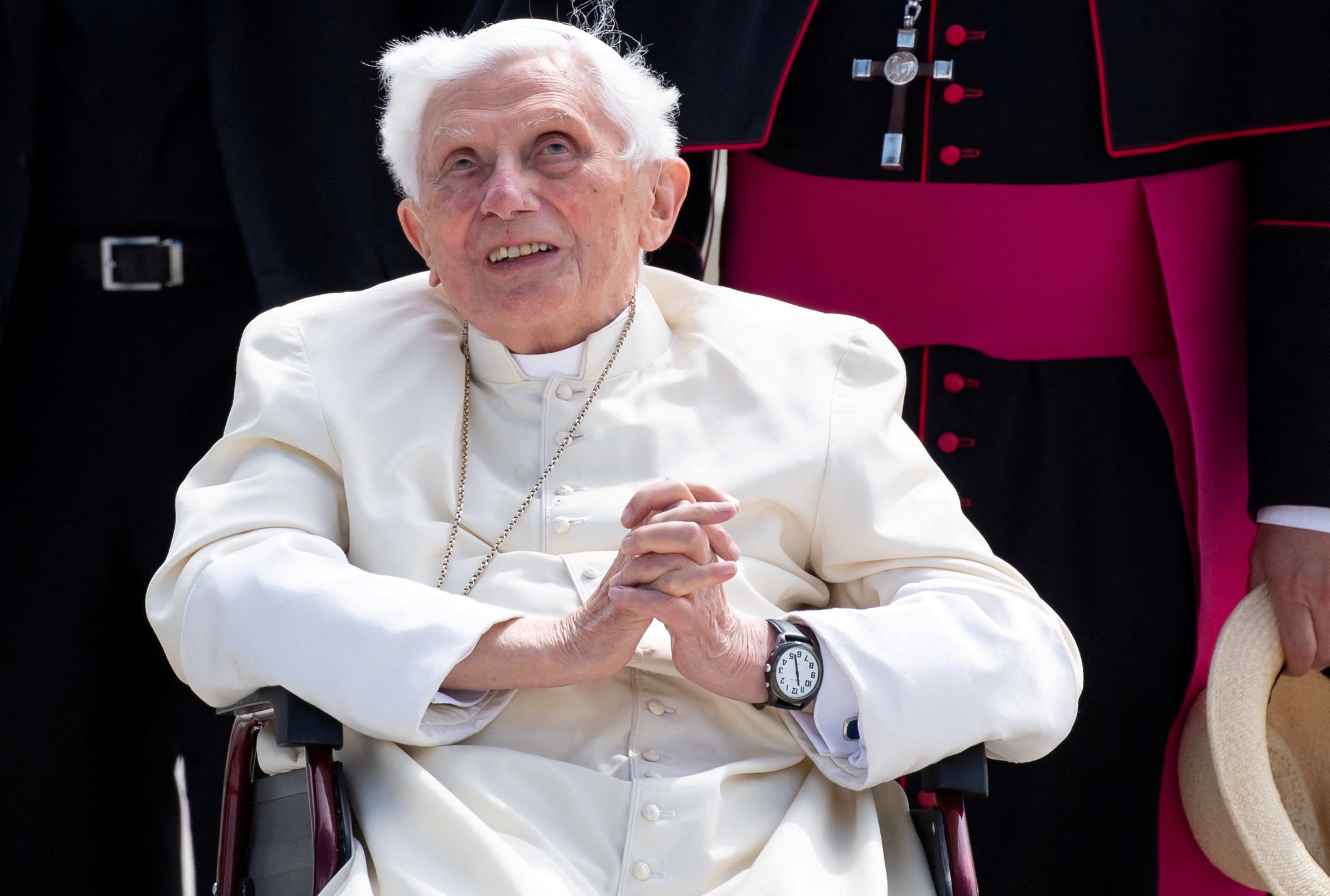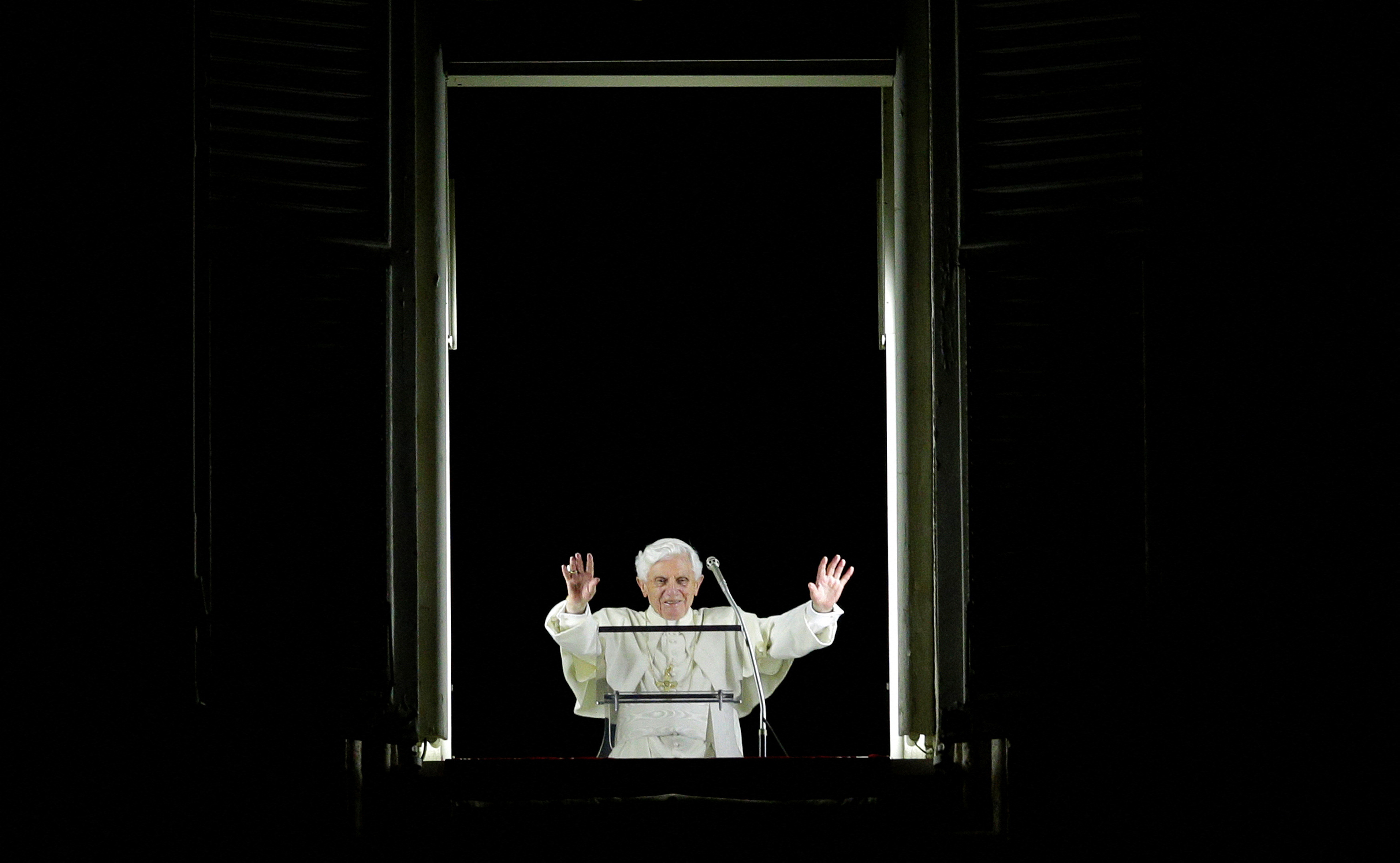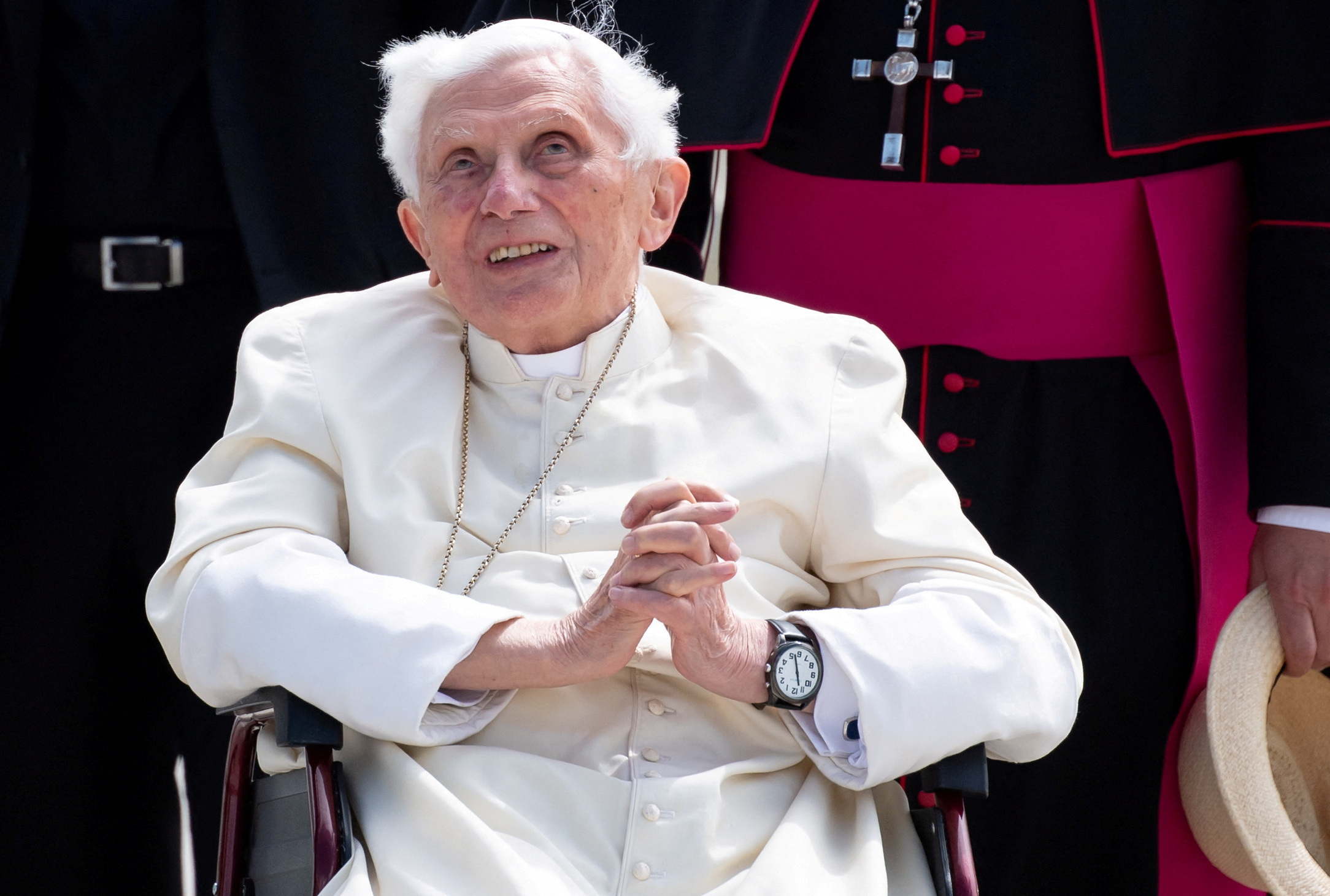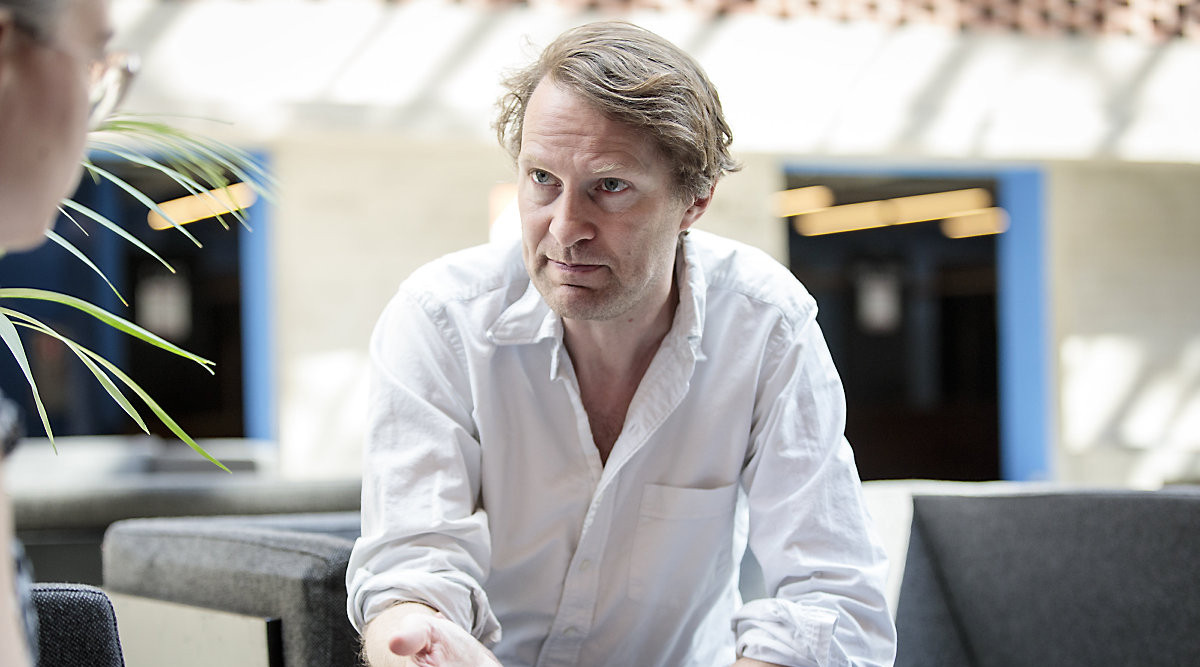Day: December 31, 2022
Following are reactions to the death of former Pope Benedict, who was the first pontiff in 600 years to resign from the post rather than rule for life:
MARKUS SOEDER, STATE PREMIER OF THE GERMAN STATE OF BAVARIA:
“We mourn the death of our Bavarian Pope. The death of Benedict XVI touches me deeply, as it does many people in Bavaria and all over the world. With him, society loses a convincing representative of the Catholic Church as well as one of the most influential theologians of the 20th century. In turbulent and challenging times, he was the religious leader of the Catholic faithful. Many people in his homeland will remember him with gratitude not only as Pope Benedict XVI, but also as a humble pastor … His visit of several days to Bavaria as the new Pope, expressing his love for the country and its people, is unforgettable. He always carried his homeland in his heart.”
ITALIAN PRIME MINISTER GIORGIA MELONI:
“Benedict XVI was a giant of faith and reason. A man in love with the Lord who put his life at the service of the Universal Church and has spoken, and will continue to speak, to the hearts and minds of people with the spiritual, cultural and intellectual depth of his Magisterium. A Christian, a pastor, a theologian: a great man whom history will not forget.”
“My thoughts go out to Catholics in France and around the world, bereaved by the departure of His Holiness Benedict XVI, who worked with all his soul and intelligence for a more fraternal world.”
RISHI SUNAK, UK PRIME MINISTER:
“I am saddened to learn of the death of Pope Emeritus Benedict XVI. He was a great theologian whose UK visit in 2010 was an historic moment for both Catholics and non-Catholics throughout our country. My thoughts are with Catholic people in the UK and around the world today.”
CARDINAL VINCENT NICHOLS, ROMAN CATHOLIC ARCHBISHOP OF WESTMINSTER:
“I am deeply saddened to learn of the death of Pope Benedict. He will be remembered as one of the great theologians of the 20th century. I remember with particular affection the remarkable Papal Visit to these lands in 2010.”
THE CHURCH OF ENGLAND TWEETED A PRAYER:
“Now, Lord, you let your servant go in peace:
Your word has been fulfilled.
My own eyes have seen the salvation:
Which you have prepared in the sight of every people;
A light to reveal you to the nations:
And the glory of your people Israel.”
Related Galleries:
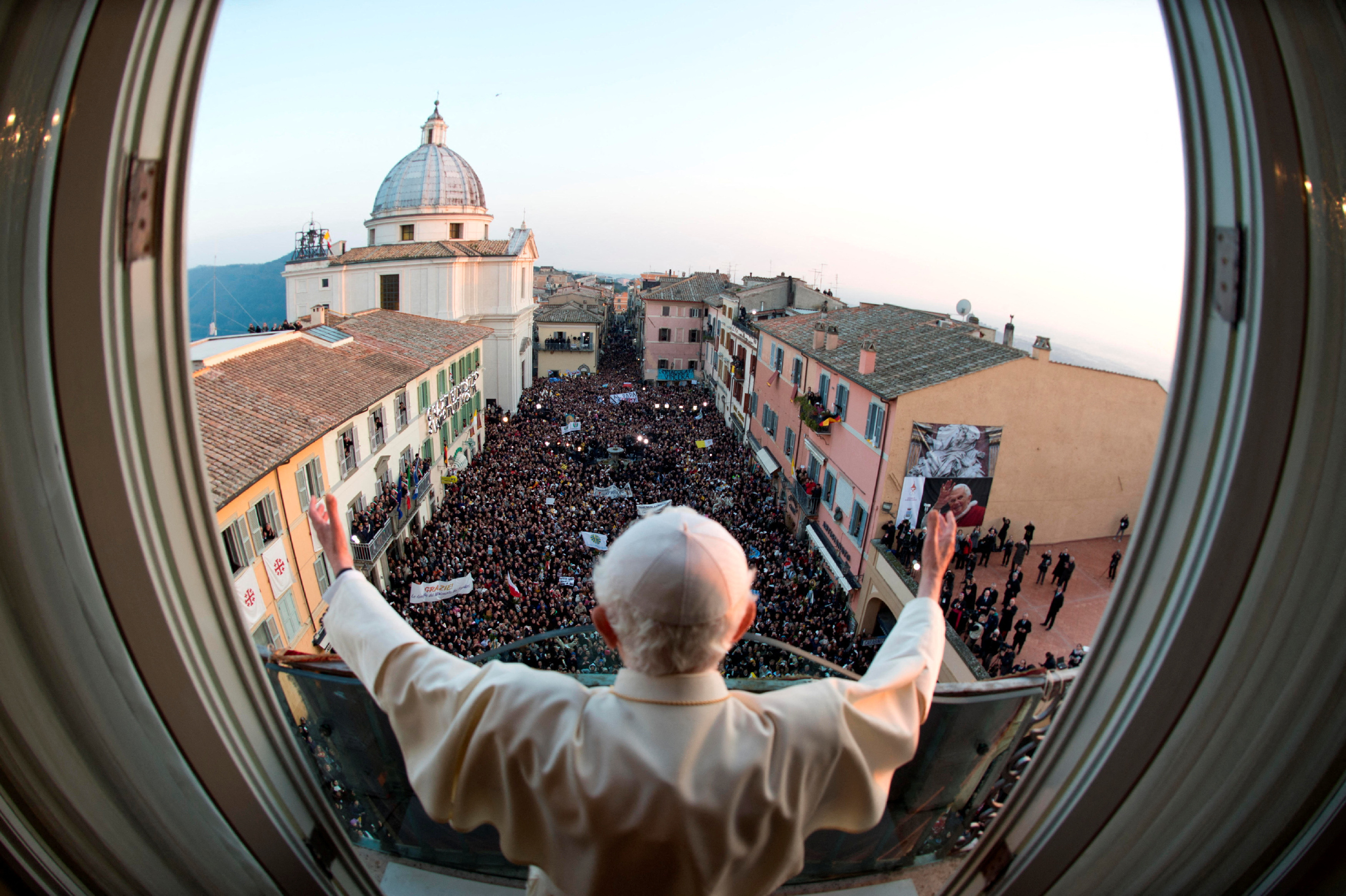
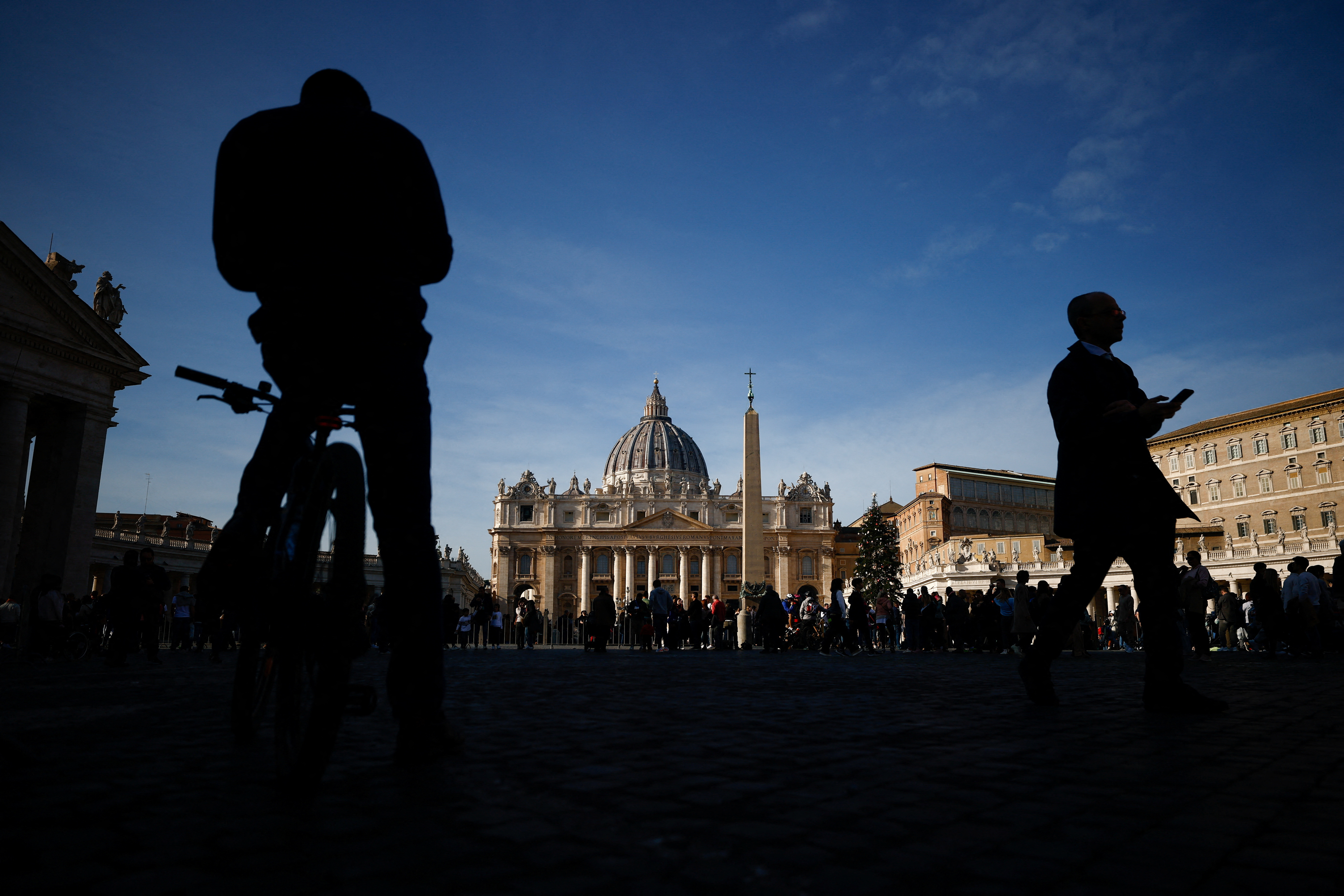
VATICAN CITY — Pope Emeritus Benedict XVI, the shy German theologian who tried to reawaken Christianity in a secularized Europe but will forever be remembered as the first pontiff in 600 years to resign from the job, died Saturday. He was 95.
Benedict stunned the world on Feb. 11, 2013, when he announced, in his typical, soft-spoken Latin, that he no longer had the strength to run the 1.2 billion-strong Catholic Church that he had steered for eight years through scandal and indifference.
His dramatic decision paved the way for the conclave that elected Pope Francis as his successor. The two popes then lived side-by-side in the Vatican gardens, an unprecedented arrangement that set the stage for future “popes emeritus” to do the same.
[time-brightcove not-tgx=”true”]
A statement from Vatican spokesman Matteo Bruni on Saturday morning said that: “With pain I inform that Pope Emeritus Benedict XVI died today at 9:34 in the Mater Ecclesia Monastery in the Vatican. Further information will be released as soon as possible.”
The former Cardinal Joseph Ratzinger had never wanted to be pope, planning at age 78 to spend his final years writing in the “peace and quiet” of his native Bavaria.
Instead, he was forced to follow the footsteps of the beloved St. John Paul II and run the church through the fallout of the clerical sex abuse scandal and then a second scandal that erupted when his own butler stole his personal papers and gave them to a journalist.
Being elected pope, he once said, felt like a “guillotine” had come down on him.
Nevertheless, he set about the job with a single-minded vision to rekindle the faith in a world that, he frequently lamented, seemed to think it could do without God.
“In vast areas of the world today, there is a strange forgetfulness of God,” he told 1 million young people gathered on a vast field for his first foreign trip as pope, to World Youth Day in Cologne, Germany, in 2005. “It seems as if everything would be just the same even without him.”
With some decisive, often controversial moves, he tried to remind Europe of its Christian heritage. And he set the Catholic Church on a conservative, tradition-minded path that often alienated progressives. He relaxed the restrictions on celebrating the old Latin Mass and launched a crackdown on American nuns, insisting that the church stay true to its doctrine and traditions in the face of a changing world. It was a path that in many ways was reversed by his successor, Francis, whose mercy-over-morals priorities alienated the traditionalists who had been so indulged by Benedict.
Benedict’s style couldn’t have been more different from that of John Paul or Francis. No globe-trotting media darling or populist, Benedict was a teacher, theologian and academic to the core: quiet and pensive with a fierce mind. He spoke in paragraphs, not soundbites. He had a weakness for orange Fanta as well as his beloved library; when he was elected pope, he had his entire study moved — as is — from his apartment just outside the Vatican walls into the Apostolic Palace. The books followed him to his retirement home.
“In them are all my advisers,” he said of his books in the 2010 book-length interview “Light of the World.” “I know every nook and cranny, and everything has its history.”
It was Benedict’s devotion to history and tradition that endeared him to members of the traditionalist wing of the Catholic Church. For them, Benedict remained even in retirement a beacon of nostalgia for the orthodoxy and Latin Mass of their youth — and the pope they much preferred over Francis.
In time, this group of arch-conservatives, whose complaints were amplified by sympathetic U.S.-based conservative Catholic media, would become a key source of opposition to Francis who responded to what he said were threats of division by reimposing the restrictions on the old Latin Mass that Benedict had loosened.
Like his predecessor John Paul, Benedict made reaching out to Jews a hallmark of his papacy. His first official act as pope was a letter to Rome’s Jewish community and he became the second pope in history, after John Paul, to enter a synagogue.
In his 2011 book, “Jesus of Nazareth,” Benedict made a sweeping exoneration of the Jewish people for the death of Christ, explaining biblically and theologically why there was no basis in Scripture for the argument that the Jewish people as a whole were responsible for Jesus’ death.
“It’s very clear Benedict is a true friend of the Jewish people,” said Rabbi David Rosen, who heads the interreligious relations office for the American Jewish Committee, at the time of Benedict’s retirement.
Yet Benedict also offended some Jews who were incensed at his constant defense of and promotion toward sainthood of Pope Pius XII, the World War II-era pope accused by some of having failed to sufficiently denounce the Holocaust. And they harshly criticized Benedict when he removed the excommunication of a traditionalist British bishop who had denied the Holocaust.
Benedict’s relations with the Muslim world were also a mixed bag. He riled Muslims with a speech in September 2006 — five years after the Sept. 11 attacks in the United States — in which he quoted a Byzantine emperor who characterized some of the teachings of the Prophet Muhammad as “evil and inhuman,” particularly his command to spread the faith “by the sword.”
A subsequent comment after the massacre of Christians in Egypt led the Al Azhar center in Cairo, the seat of Sunni Muslim learning, to suspend ties with the Vatican, which were only restored under Francis.
The Vatican under Benedict suffered notorious PR gaffes, and sometimes Benedict himself was to blame. He enraged the United Nations and several European governments in 2009 when, en route to Africa, he told reporters that the AIDS problem couldn’t be resolved by distributing condoms.
“On the contrary, it increases the problem,” Benedict said. A year later, he issued a revision saying that if a male prostitute were to use a condom to avoid passing HIV to his partner, he might be taking a first step toward a more responsible sexuality.
But Benedict’s legacy was irreversibly colored by the global eruption in 2010 of the sex abuse scandal, even though as a cardinal he was responsible for turning the Vatican around on the issue.
Documents revealed that the Vatican knew very well of the problem yet turned a blind eye for decades, at times rebuffing bishops who tried to do the right thing.
Benedict had firsthand knowledge of the scope of the problem, since his old office — the Congregation for the Doctrine of the Faith, which he had headed since 1982 — was responsible for dealing with abuse cases.
In fact, it was he who, before becoming pope, took the then-revolutionary decision in 2001 to assume responsibility for processing those cases after he realized bishops around the world weren’t punishing abusers but were just moving them from parish to parish where they could rape again.
And once he became pope, Benedict essentially reversed his beloved predecessor, John Paul, by taking action against the 20th century’s most notorious pedophile priest, the Rev. Marcial Maciel. Benedict took over Maciel’s Legionaries of Christ, a conservative religious order held up as a model of orthodoxy by John Paul, after it was revealed that Maciel sexually abused seminarians and fathered at least three children.
In retirement, Benedict was faulted by an independent report for his handling of four priests while he was bishop of Munich; he denied any personal wrongdoing but apologized for any “grievous faults.”
As soon as the abuse scandal calmed down for Benedict, another one erupted.
In October 2012, Benedict’s former butler, Paolo Gabriele, was convicted of aggravated theft after Vatican police found a huge stash of papal documents in his apartment. Gabriele told Vatican investigators he gave the documents to Italian journalist Gianluigi Nuzzi because he thought the pope wasn’t being informed of the “evil and corruption” in the Vatican and that exposing it publicly would put the church on the right track.
Once the “Vatileaks” scandal was resolved, including with a papal pardon of Gabriele, Benedict felt free to take the extraordinary decision that he had hinted at previously: He announced that he would resign rather than die in office as all his predecessors had done for almost six centuries.
“After having repeatedly examined my conscience before God, I have come to the certainty that my strengths due to an advanced age are no longer suited” to the demands of being the pope, he told cardinals.
He made his last public appearances in February 2013 and then boarded a helicopter to the papal summer retreat at Castel Gandolfo, to sit out the conclave in private. Benedict then largely kept to his word that he would live a life of prayer in retirement, emerging only occasionally from his converted monastery for special events and writing occasional book prefaces and messages.
Usually they were innocuous, but one 2020 book — in which Benedict defended the celibate priesthood at a time when Francis was considering an exception — sparked demands for future “popes emeritus” to keep quiet.
Despite his very different style and priorities, Francis frequently said that having Benedict in the Vatican was like having a “wise grandfather” living at home.
Benedict was often misunderstood: Nicknamed “God’s Rottweiler” by the unsympathetic media, he was actually a very sweet and fiercely smart academic who devoted his life to serving the church he loved.
“Thank you for having given us the luminous example of the simple and humble worker in the vineyard of the Lord,” Benedict’s longtime deputy, Cardinal Tarcisio Bertone, told him in one of his final public events as pope.
Benedict inherited the seemingly impossible task of following in the footsteps of John Paul when he was elected the 265th leader of the Church on April 19, 2005. He was the oldest pope elected in 275 years and the first German in nearly 1,000 years.
Born April 16, 1927, in Marktl Am Inn, in Bavaria, Benedict wrote in his memoirs of being enlisted in the Nazi youth movement against his will in 1941, when he was 14 and membership was compulsory. He deserted the German army in April 1945, the waning days of the war.
Benedict was ordained, along with his brother, Georg, in 1951. After spending several years teaching theology in Germany, he was appointed bishop of Munich in 1977 and elevated to cardinal three months later by Pope Paul VI.
His brother Georg was a frequent visitor to the papal summer residence at Castel Gandolfo until he died in 2020. His sister died years previously. His “papal family” consisted of Monsignor Georg Gaenswein, his longtime private secretary who was always by his side, another secretary and consecrated women who tended to the papal apartment.
NEW YORK (AP) — Sonya Yoncheva, a soprano at the top of her profession, worries about classical music.
“My son, if I ask him, he always says, ‘I want to be like Ronaldo.’ And later, if I ask my girl, she will say, ‘I want to be Lady Gaga and Beyoncé,’” the Bulgarian singer explained ahead of Saturday’s new production premiere of Giordano’s “Fedora” at the Metropolitan Opera. “They really don’t associate with the classical music artists. Times are changing.”
In a bid to shape projects and bolster opera’s audience, Yoncheva is launching her own record label.
A Sony Classical artist since 2013, Yoncheva is releasing “The Courtesan” on her own SY11 Productions label, recorded with conductor Marco Armiliato, tenor Charles Castronovo and Italy’s Orchestra dell’Opera Carlo Felice Genova. It will launch on Amazon on Feb. 9.
In a time of dwindling classical sales and releases, she was able to choose the selections and even the cover photo, matters subject to a collaboration on Sony recordings.
“I never really had the chance to guide my project from first step to the last step,” she said. “They were always a very good team with me, but I never felt free.”
In the first close-to-normal season since the pandemic’s onset, Yoncheva sings a revival of Bellini’s “Norma” at the Met starting Feb. 28, then has role debuts as Maddalena di Coigny in Giordano’s “Andrea Chénier” at Milan’s Teatro alla Scala on May 3 and Cio-Cio-San in Puccini’s “Madama Butterfly” at the Vienna State Opera on June 23.
“She is one of our most important artists,” Met general manager Peter Gelb said. “She’s a wonderful actress and a great singer. She is the kind of the artist that the Met needs more than ever these days as we try to make opera more appealing to a broader audience. It’s extremely challenging because the core opera audience is much smaller than it once was.”
Born in Plovdiv, Bulgaria, on Christmas Day 1981, Yoncheva attended William Christie’s “Jardin des Voix” in 2007 and moved to Switzerland to enroll at the Conservatoire de Musique de Genève.
“I wanted to come to the States, but I never managed to have a scholarship,” she said. “At the time, a salary of a normal Bulgarian person was $60 per month, so when you compare this to what has to be paid in a university in the States, it’s just insanely expensive, so for this reason I had to chose Europe. Someone gave me a little envelope with the name of the high school in Geneva, and this person told me ‘You should go there,’ and I said OK.”
In 2010, she became the first woman to win Plácido Domingo’s Operalia competition, and she went on to debuts at the Met and Royal Opera (2013), Vienna State Opera (2014), Milan’s Teatro alla Scala and Paris (2017).
Yoncheva starred in Claus Guth’s 2017 Paris production of Puccini’s “La Bohème,” infamously relocated to a space shuttle.
“This was such a nightmare,” she said, laughing, “but many people are still talking about it.”
She has become more discerning with directors.
“Maybe they will have a concept, OK, but I want them to believe in that and to be honest with it and to explain to me why,” she said. “I must believe in it, and sometimes what is happening is that themselves, they don’t believe it and then they do it to provoke.”
David McVicar is directing “Fedora” in his 13th Met production — a future staging of Ponchielli’s “La Gioconda” is planned — in a fairly traditional mounting. Yoncheva made her role debut at La Scala on Oct. 15 in a modern-dress production directed by Mario Martone, and she worried about being heard.
“The stage director decided to leave the whole stage empty. Me and Roberto Alagna, we were struggling the whole night to find the Punto Callas, Punto Caballé, Punto Tebaldi, Punto I don’t know whom,” Yoncheva said, referring to the so-called preferred stage spots of Maria Callas, Montserrat Caballé and Renata Tebaldi decades earlier.
“I finished the production and I said ‘Oh, my God! What am I going to do at the Met?’ because the Met is maybe three times bigger than La Scala,” Yoncheva said. “I immediately called David, I said, ‘Please tell me there are some walls.’ And he said yes. He showed me pictures, and I was reassured.”
Her male lead at the Met is tenor Piotr Beczala. They have worked together for a decade.
“Our voices our pretty similar,” Beczala said. “I am coming from the lyric corner and she’s coming from the lyric corner, arriving now for a little more spinto repertory.”
While the Met dropped plans to present Yoncheva in John Corigliano’s “The Ghosts of Versailles” and “Madama Butterfly,” she has committed to a new production of Verdi’s “Un Ballo in Maschera (A Masked Ball)” and revivals of Tchaikovsky’s “Pique Dame (The Queen of Spades)” and Cherubini’s “Medea” in Italian.
She lives outside Geneva with her husband, conductor Domingo Hindoyan, whom she met in school. They are kept busy by 8-year-old son Mateo and 3-year-old daughter Sofia, with the entire family traveling to New York for her extended stay.
Yoncheva’s daughter looks at her career somewhat differently than the opera audience.
“I ask her what daddy does and she starts to conduct,” Yoncheva said. “And then I ask her what mommy does, and she says, ‘Oh, mommy, she’s Elsa from ‘Frozen’’ — because I’m dressed like a princess and I sing.”
Former Pope Benedict, who in 2013 became the first pontiff in 600 years to resign, died on Saturday aged 95 in a secluded monastery in the Vatican where he had lived since stepping down, a spokesman for the Holy See said.
The Vatican said his body would lie in state from Monday in St.Peter’s Basilica. The Vatican has painstakingly elaborate rituals for what happens after a reigning pope dies but no publicly known ones for a former pope.
“With sorrow I inform you that the Pope Emeritus, Benedict XVI, passed away today at 9:34 in the Mater Ecclesiae Monastery in the Vatican,” spokesman Matteo Bruni said in a statement.
Earlier this week, Pope Francis disclosed during his weekly general audience that his predecessor was “very sick”, and asked for people to pray for him.
For nearly 25 years, as Cardinal Joseph Ratzinger, Benedict was the powerful head of the Vatican’s doctrinal office, then known as the Congregation for the Doctrine of the Faith (CDF).
He was elected pope on April 19, 2005 to succeed the widely popular Pope John Paul II, who reigned for 27 years. Cardinals chose him from among their number seeking continuity and what one called “a safe pair of hands”.
The first German pope in 1,000 years, Benedict himself acknowledged that he was a weak administrator, saying he showed a “lack of resolve in governing and decision taking,” during his eight-year papacy which was marked by missteps and a leaks scandal.
Child abuse scandals hounded most of his papacy but he is credited with jump-starting the process to discipline or defrock predator priests after a more lax attitude under his predecessor.
After his resignation, conservatives in the Church looked to the former pope as their standard bearer and some ultra-traditionalists even refused to acknowledge Francis as a legitimate pontiff.
They have criticised Francis for his more welcoming approach to members of the LGBTQ+ community and to Catholics who divorced and remarried outside the Church, saying both were undermining traditional values.
Related Galleries:
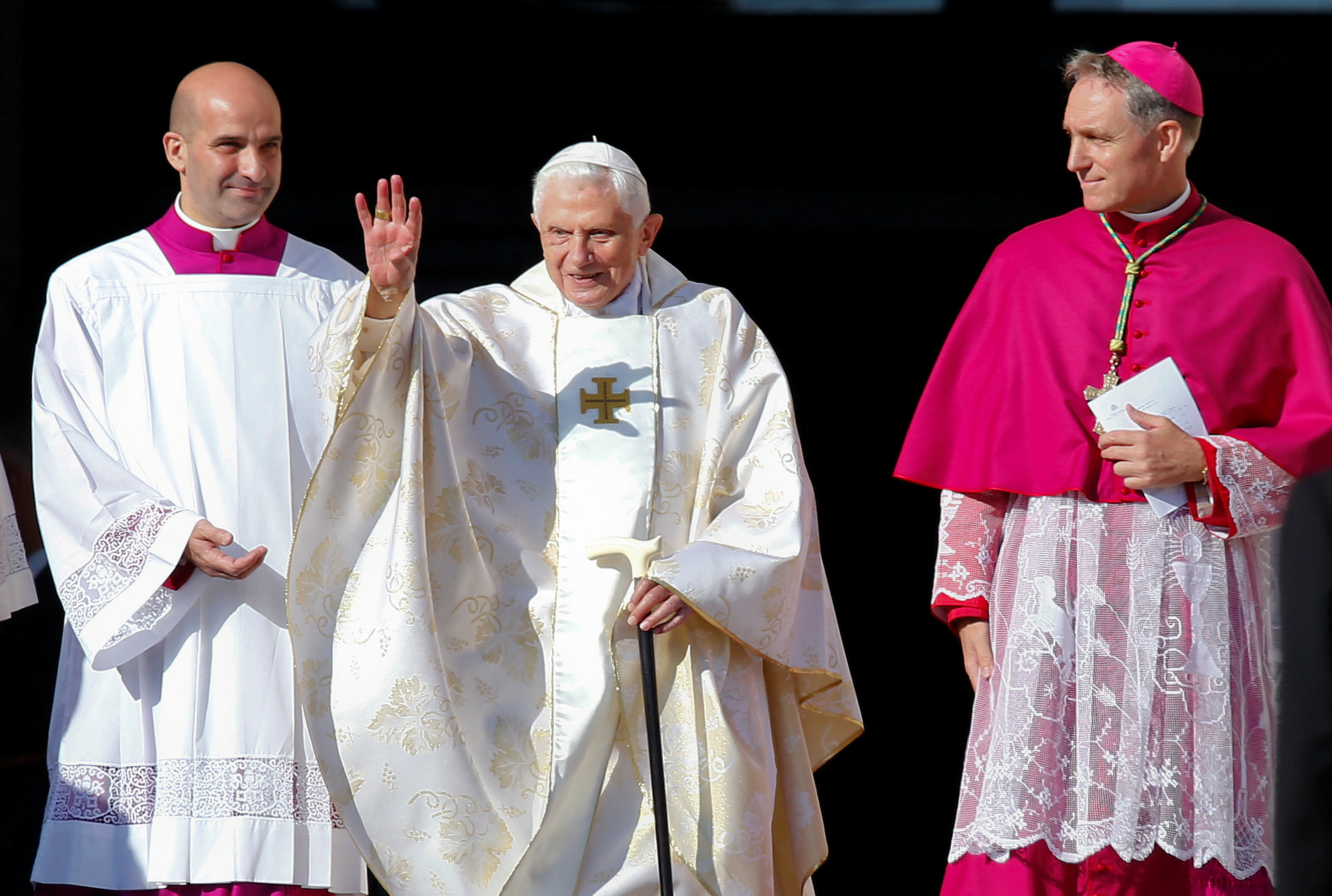
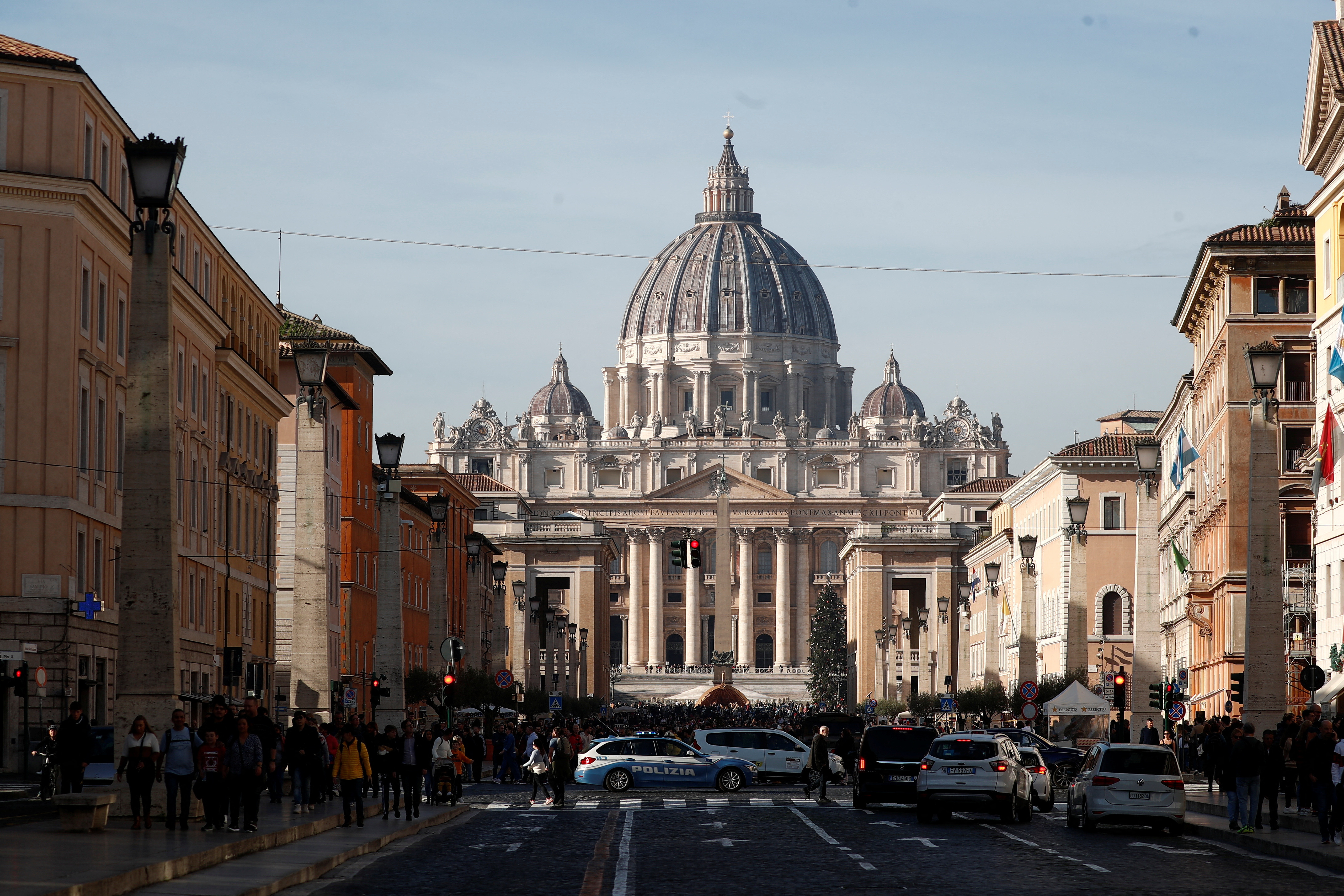
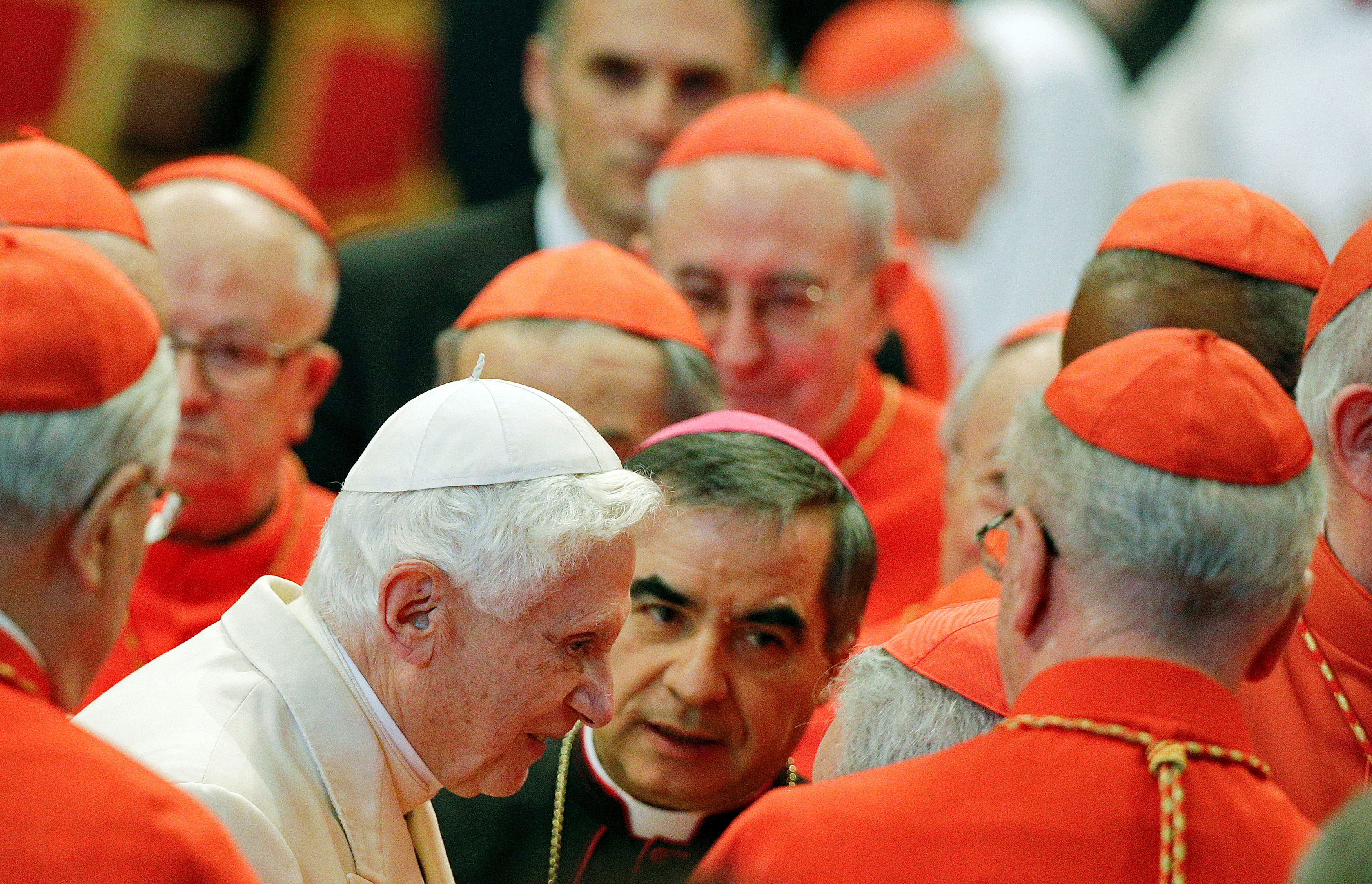
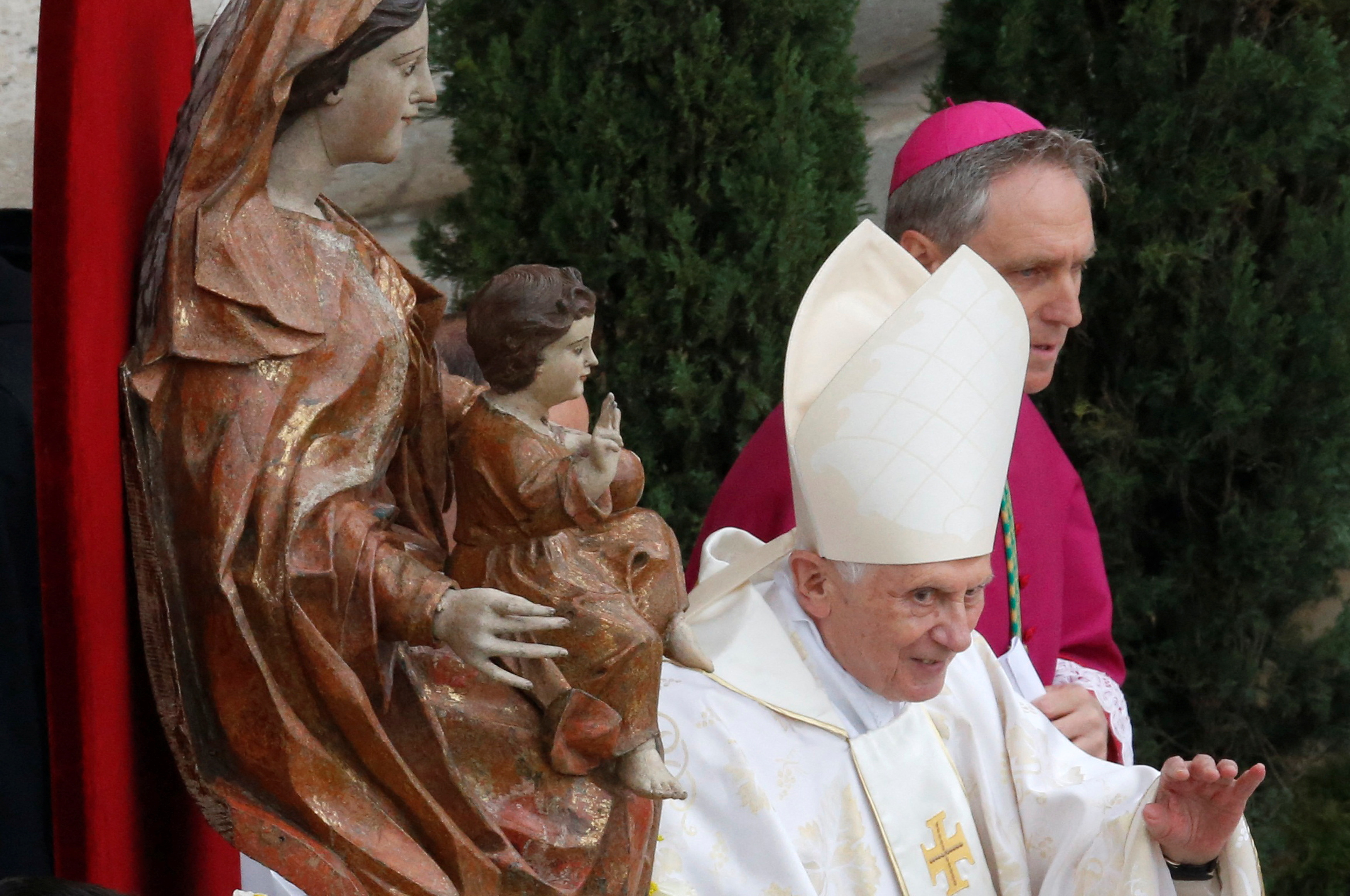
Former pope Benedict, who died on Saturday, was the first pontiff in 600 years to resign from the post rather than rule for life.
Here are some of the major events of his papal ministry and retirement:
2005:
April 19 – German Cardinal Joseph Ratzinger, the head of the Vatican’s doctrinal office, is elected to succeed Pope John Paul II as the 265th leader of the Roman Catholic Church. He chooses the name Benedict XVI.
2006:
Sept. 9-14 – The pope visits his Bavarian homeland. He sparks protests from the Muslim world with a speech quoting a 14th century Byzantine emperor who said Islam had only brought evil to the world and was spread by the sword. Days later, Benedict says he was “deeply sorry” about Muslim reaction to his speech, which he says was misunderstood.
Nov. 28-Dec. 1 – Papal trip to Turkey is a fence-mending visit including prayers with Istanbul’s grand mufti facing Mecca at the city’s Blue Mosque.
2007:
July 7 – Pope issues a declaration allowing the old Latin Mass to be celebrated more widely, a demand of church traditionalists.
2008:
Feb. 5. – Pope changes a Latin prayer for Good Friday services by traditionalist Catholics, deleting a reference to Jews and their “blindness” but still calling for them to accept Jesus.
2009:
Jan. 24 – Pope causes uproar by lifting excommunications of four ultra-traditionalist bishops, including a Holocaust denier.
2010:
Nov. 6 – Benedict arrives in Spain for a two-day visit. He attacks abortion and same-sex marriage, recently legalised in Spain, in a Mass to consecrate Barcelona’s Sagrada Familia church in another pointed criticism of what he called Spain’s “aggressive secularism”.
2011:
July 25 – The Vatican recalls its ambassador to Ireland following an unprecedented rebuke of the Holy See by the Irish parliament in the wake of a report that accused church authorities of covering up sexual abuse.
2012:
Through the year, Benedict’s papacy is shaken by a scandal dubbed “Vatileaks” in which leaked documents show infighting among Benedict’s aides and general dysfunction at the heart of the Church’s central administration, known as the Curia. The scandal exposed financial corruption and allegations about the existence of a so-called “gay lobby” that used blackmail to protect its members.
Oct. 6 – A Vatican court finds Benedict’s former butler guilty of stealing sensitive documents and sentences him to a year and a half in prison. Paolo Gabriele said he had acted out of “visceral” love for the Roman Catholic Church and the pope. Benedict later pardoned Gabriele and the Vatican later found him a job in a hospital. Gabriele died in 2020.
Feb. 11 – Benedict announces his intention to resign, saying he no longer has the physical and mental strength to run the Church. The surprise announcement shocks a meeting of cardinals.
Feb. 28 – Benedict formally steps down, moving temporarily to the papal summer residence south of Rome, and later moving to a former convent inside the Vatican gardens, with his secretary, Archbishop Georg Ganswein, and other aides and medical staff.
Jan. 20 – An independent report in Germany alleges Benedict failed to act against four cases of sexual abuse in his archdiocese when he was Archbishop of Munich between 1977 and 1982. Benedict pope later acknowledges errors occurred and asks for forgiveness.
Dec. 31 – Benedict dies in the Mater Ecclesiae Monastery in the Vatican where he had lived since his resignation.
Related Galleries:
